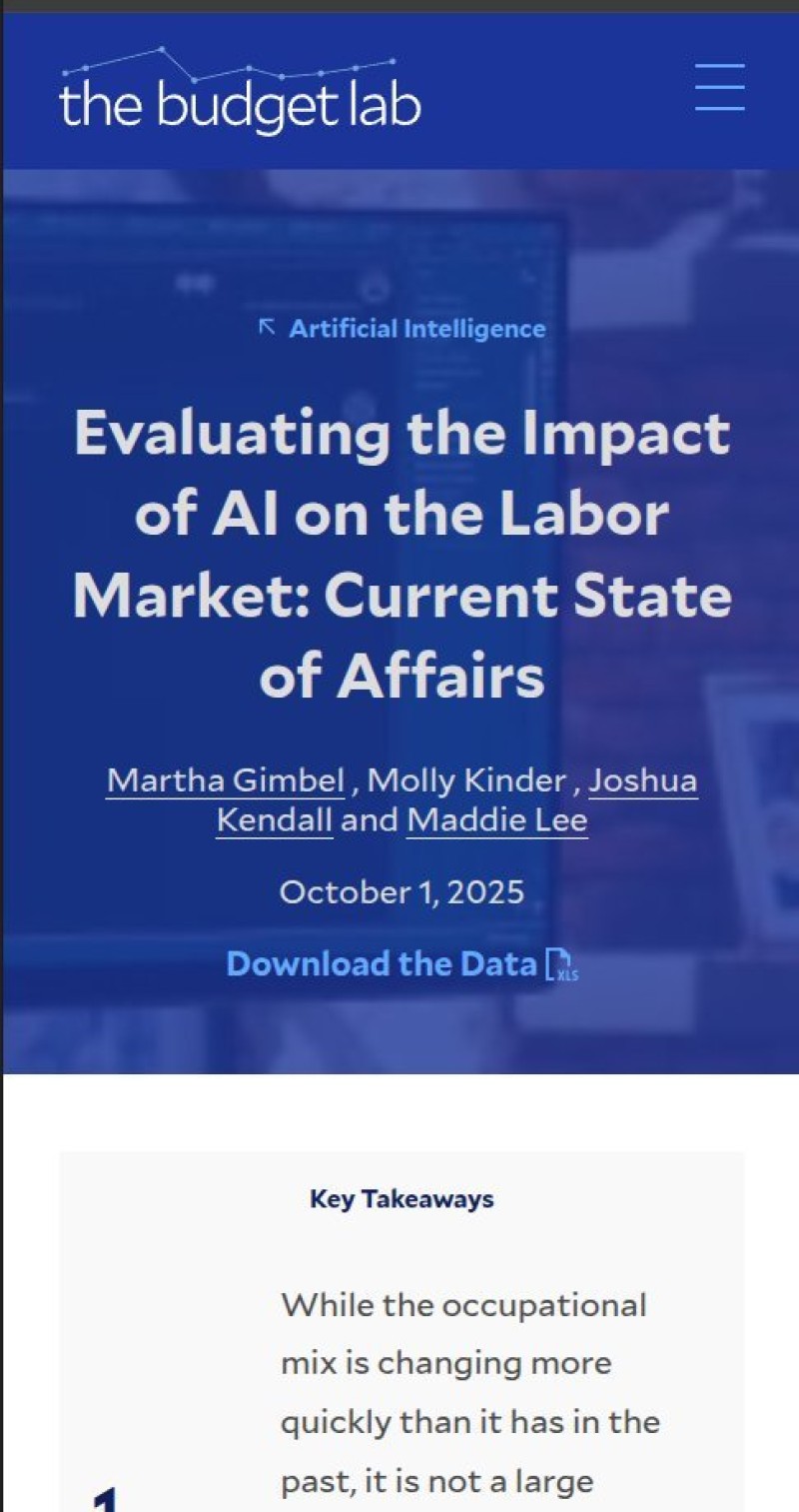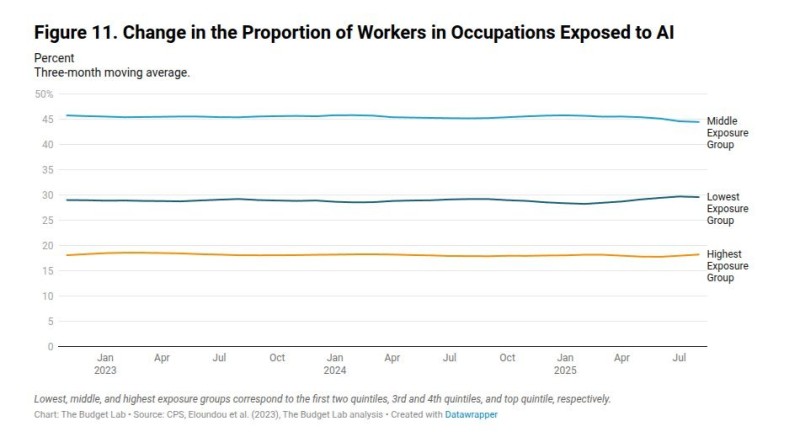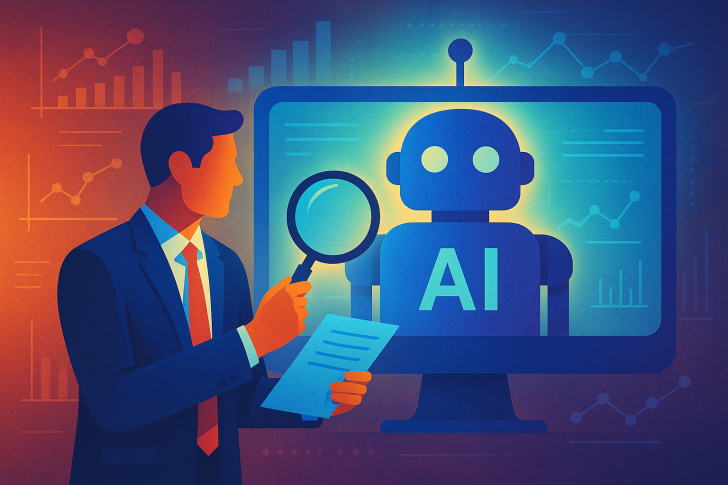⬤ New research from Yale economists shows AI's actual impact on jobs is way smaller than everyone expected. Looking at nearly three years of employment data, the study found that job types have only shifted slightly since generative AI arrived—nothing like the mass job losses people predicted. The numbers tell a clear story: AI hasn't caused any major employment shake-up yet, with barely any detectable structural changes in how people work across the country.

⬤ Some lawmakers are talking about taxes or regulations to prevent future automation problems, but the study warns this might backfire. Adding these rules too early could hurt struggling businesses by piling on compliance costs, potentially pushing smaller companies into bankruptcy and driving talent away. This seems especially risky now that the data shows the feared job disruption simply hasn't happened.

⬤ The Yale researchers tracked job market changes using a dissimilarity index over 33 months since November 2022. Here's what they found: the index moved only about one point faster than during the early internet days. Even when they started measuring from different dates—January 2021, January 2022, or July 2022—the results stayed the same, showing these mild shifts started before AI tools launched. While sectors like Information, Financial Activities, and Professional Services showed more movement, those trends were already underway before generative AI showed up.
⬤ The analysis also points out that "exposure scores" dramatically overstate AI's real threat to jobs. OpenAI's framework puts about 29% of workers in low-exposure jobs, 46% in medium, and 18% in high-exposure roles—and these numbers haven't budged. Meanwhile, actual AI usage data from Anthropic shows adoption is heavily clustered in coding and math-intensive work. Many clerical jobs labeled as "exposed" barely use AI at all. Bottom line: exposure predictions alone paint a much scarier picture than reality, backing up the study's finding that AI hasn't actually reshaped how we work yet.
 Eseandre Mordi
Eseandre Mordi

 Eseandre Mordi
Eseandre Mordi


